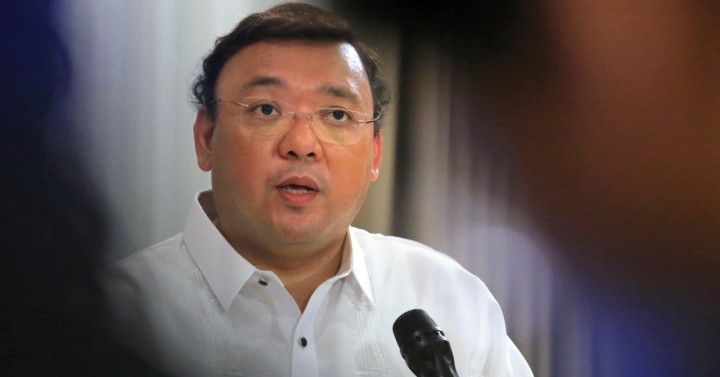
MANILA – The resignation of the Philippine Health Insurance Corp. (PhilHealth) officials will not shield them from possible charges, in case probe results find them liable for the supposed widespread corruption within the state insurer, Malacañang said on Thursday.
This, after PhilHealth president and chief executive officer Ricardo Morales, as well as PhilHealth senior vice president for legal sector Rodolfo del Rosario Jr., quit their respective posts amid controversies hounding the government-run insurance firm.
“The law is very clear. If there is criminal liability incurred when you are in office, it subsists and public officers can be held liable for them, whether or not they continue to be in office,” Presidential Spokesperson Harry Roque said in a virtual press briefing.
Morales, who admitted to have been diagnosed with lymphoma or cancer of the lymph nodes, submitted his resignation on Wednesday upon President Rodrigo Duterte’s advice to allow the embattled PhilHealth chief to focus on his health first.
Morales’ resignation was followed by Del Rosario’s decision to also step down from office.
Several officials are being accused of being members of the so-called PhilHealth “mafia” that is allegedly manipulating the state insurer’s financial records.
Roque confirmed that Duterte had already accepted Morales’ resignation.
“Well, the President has always been of the opinion that health should come first. Kaya nga po (That’s why) he is hoping that the resignation of General Morales will lead to the recovery of General Morales from his current ailment,” he said.
‘Careful’ in appointing new PhilHealth chief
Following Morales’ resignation, board members of the state health insurer have designated PhilHealth executive vice president Arnel de Jesus as the agency’s officer-in-charge.
Roque said Duterte is already scouting for a new PhilHealth chief who must be “corrupt-free” and has “managerial skills”.
He said there are “names” that are being considered by Duterte.
Roque, however, stressed that Duterte is being “careful” in appointing the new head of PhilHealth because the President wants someone who can help him rid the agency of corruption.
“Pinipili po ni Pangulo kung sino po ang meron talagang kwalipikasyon para maibangon muli ang PhilHealth. Kumbaga dahil inaamin naman ni Presidente na talagang ang PhilHealth needs his personal attention (The President is eyeing someone who has the qualification that can save PhilHealth. The President admitted that PhilHealth needs his personal attention),” he said.
Possible PhilHealth revamp
Roque also raised the possibility that Duterte might order a revamp of PhilHealth in an effort to curb corruption within the state corporation.
“Iyan po ay isang possibility (That’s a possibility),” he said, when quizzed if Duterte might reorganize PhilHealth.
Roque’s statement came amid ongoing investigations into the supposed massive corruption involving PhilHealth officials and personnel.
Roque, however, said reorganizing PhilHealth should be in compliance with the law.
“The reorganization cannot also violate the law. So, it has to comply with it,” he said.
On August 19, Marikina City Rep. Stella Quimbo filed House Bill (HB) 7429 or the proposed Social Health Insurance Crisis Act, which allows the President to revamp the executive leadership of PhilHealth by privatizing any or all segments of the agency, if necessary, to make it more effective to address the social health insurance crisis.
Under HB 7429, the President can abolish or create offices, transfer functions, institute drastic cost-cutting, and take other measures to reorganize PhilHealth.